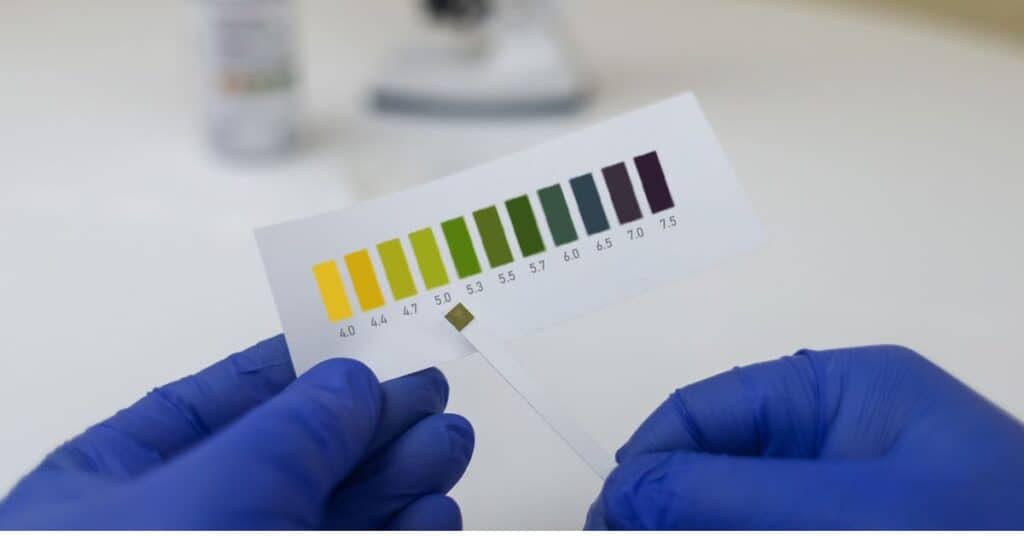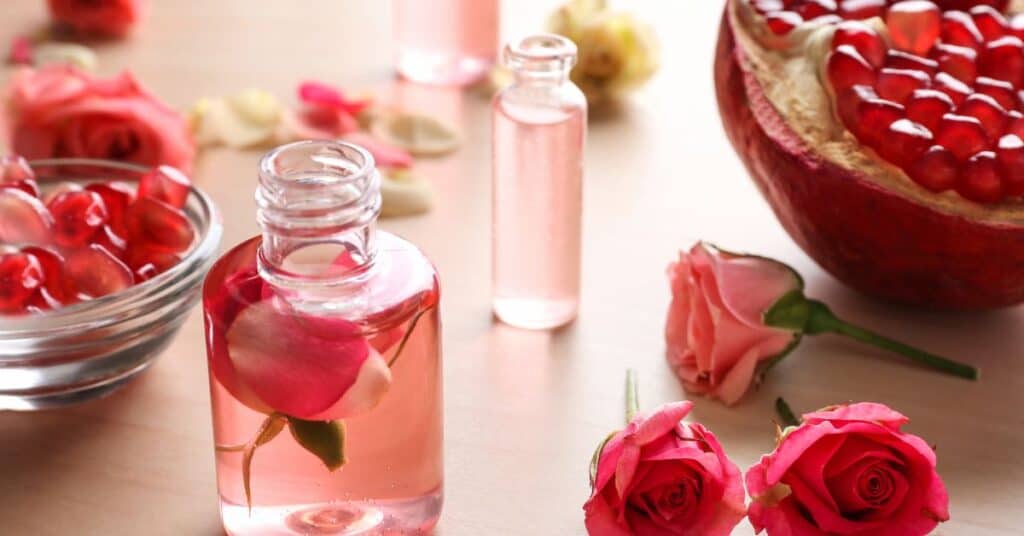Table of Contents
- What Causes Vagina pH Imbalance?
- What Are the Symptoms Of pH Imbalance Caused By Scented Soap?
- How To Prevent And Treat Vagina pH Imbalance Caused By Scented Soap?
- Conclusion
Can Scented Soap Cause vagina pH Imbalance? Yes! The vagina has a natural pH of around 3.8 to 4.5, which is acidic as well.
As feminine, our vagina keeps a healthy balance of beneficial bacteria (lactobacilli) and prevents infections and harmful bacteria (such as yeast infection or bacteria vaginosis).
Scented soaps are products that contain fragrances, colors, and other chemicals that affect the vaginal pH and cause abnormal vagina discharge.
Scented soaps are usually alkaline, with a pH of 9 to 10. This means they raise the vaginal pH value and make it more alkaline than it should be.
In this blog post, we’ll explore the relationship between scented soap and vaginal pH balance.
Let’s Start!
What Causes Vagina pH Imbalance?
The vaginal pH value change due to your menstrual cycle, sexual activity, pregnancy, menopause, and the products you use.
There are many possible causes of a vaginal pH imbalance. Some of the common ones are:
Unprotected sex: Semen has a pH of around 7.4, which is more alkaline than the normal vaginal pH.
When semen mixes with vaginal fluids, it raises the pH, disrupts the balance of bacteria, and becomes more basic.
Antibiotics: Antibiotics can kill both harmful and beneficial bacteria in the vagina, leading to an overgrowth of yeast or other organisms that can cause infections and vagina discharge.
Douching: Douching is the practice of washing the vagina with water or other substances, such as vinegar, baking soda, or scented products.
Douching alters the natural acidity of the vagina tract and makes it more susceptible to infections.
Using a balanced intellect cleaner or a dermatologist-approved cleanser is the optimal way to clean the genital region.
Hormonal changes:
Hormonal fluctuations or decline during the menstrual cycle, pregnancy, menopause, or use of hormonal contraceptives contribute to the vaginal pH and bacteria growth.
Estrogen, for example, helps maintain a low pH and supports the growth of lactobacilli, which are beneficial bacteria that produce lactic acid and hydrogen peroxide.
Low estrogen levels reduce the number of lactobacilli and increase the pH value.
Lubricant and vagina moisturizer: it super essential to use the proper lubricant for your needs.
If you are trying to get pregnant, you want to use a lubricant that has a higher pH, like 7 or 8 pHs.
Acidity is not conducive to alkaline sperm, so using an acidic lubricant can be a barrier to getting pregnant.
Coconut oil: Remember that using coconut oil as a lubricant or moisturizer has a high pH value of 7 or 8.
It may feel great on the skin, but it is not a long-term solution for the genital tract and can erode the protective acid mantle over the long term.
Menstrual blood: Menstrual blood has a pH of around 7.4, which is higher than the normal vagina pH. Blood can temporarily raise the pH of the vagina.
What Are the Symptoms Of pH Imbalance Caused By Scented Soap?
- Dryness, tightness, and flaking of the skin
- Redness, itching, burning, and swelling of the skin and vagina
- Rashes, bumps, blisters, and hives on the skin and vagina
- Unpleasant odor and discharge from the vagina
- Pain, discomfort, and bleeding during or after sexual intercourse
- Increased risk of urinary tract infections, yeast infections, and bacterial vaginosis
How To Prevent And Treat Vagina pH Imbalance Caused By Scented Soap?
The best way to prevent and treat pH imbalance caused by scented soap is to avoid using scented soap in the vagina tract.
Instead, you should use gentle, unscented, and pH-balanced products that are specially designed for your vaginal health. Some tips to follow are:
Choose mild, hypoallergenic, and fragrance-free soaps, dermatologist-approved cleansers, and wipes for the vulva, not the vagina.
Remember, nothing goes inside the vagina.
Hydration is critical; drinking lots of water dilutes the body’s acidity and helps maintain a healthy pH.
Also, your diet matters; eating alkaline foods like bananas, oranges, and coconut water can help restore vaginal pH.
But here is the trick: limit your sugar, caffeine, and alcohol intake, as they create an acidic environment.
Excessive intake of these two things doesn’t just affect your vagina’s pH; it also affects your body and brain.
Exercise regularly, manage stress, and get enough sleep to improve your blood circulation, immune system, and hormonal balance.
Another game-changer is probiotics, and they can be found in yogurt, kimchi, sauerkraut, and supplements.
Probiotics restore the beneficial bacteria in your body, maintaining that healthy pH balance.
Avoid wearing pantyliners or pads when not necessary, as these trap more moisture next to the skin and can cause irritation of the vulva.
Plus, be cautious about scent products and tampons, as they disrupt the vagina’s pH value.
Long-term maintenance includes lifestyle modification, regular checkups, and an awareness of the vagina’s pH balance by using the vagina pH test tool.
As a result, vaginal pH tests can be used to aid in the clinical diagnosis of BV.
Although the sensitivity of vaginal pH tests alone is limited, it is still a very convenient tool for women to use on their own to monitor their vaginal health, particularly when experiencing vaginitis symptoms.
Wear breathable cotton underwear and loose-fitting clothing that allow air circulation and prevent moisture buildup.
Avoid wearing synthetic, tight-fitting, damp clothing that can trap heat and sweat and cause chafing and infections.
Always wash gently, and if you have already washed in that area that day but need to wash again due to exercise or activity, use water only.
Avoid products that contain alcohol, parabens, sulfates, or other harsh chemicals that dry out and irritate your skin and vagina.
Consult your doctor if you have any signs or symptoms of pH imbalance that do not improve or worsen after following these tips.
Your doctor can diagnose the cause of your pH imbalance and prescribe the appropriate treatment.
Garlic: This natural antifungal and antibacterial agent can help fight off infections and balance the pH.
Eat raw garlic or insert a peeled clove into your vagina for a few hours.
Do not leave your skin and vagina wet, as it can create a breeding ground for bacteria and fungi.
Conclusion
While scented soaps can potentially impact pH balance, it’s crucial; You follow a healthy diet and lifestyle that support your vaginal health.
Choosing wisely and being mindful of product ingredients is essential for maintaining a healthy vagina pH balance.
If you notice persistent issues or discomfort, consult with a dermatologist, who can provide personalized recommendations.



